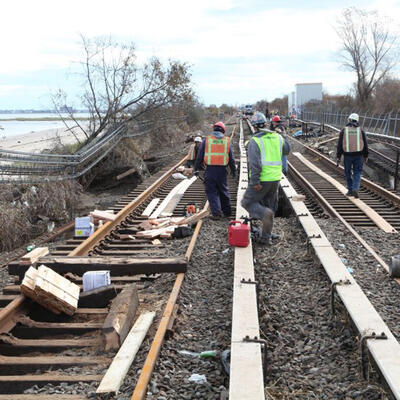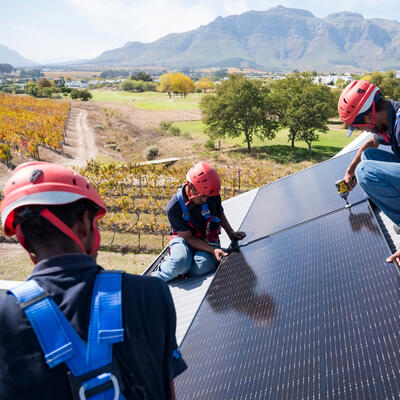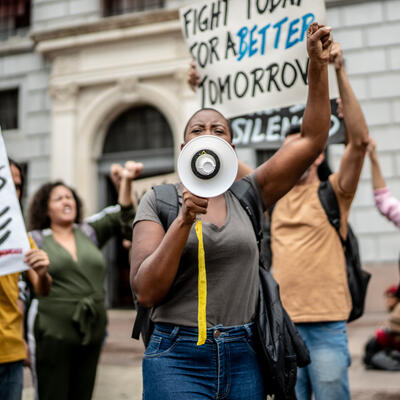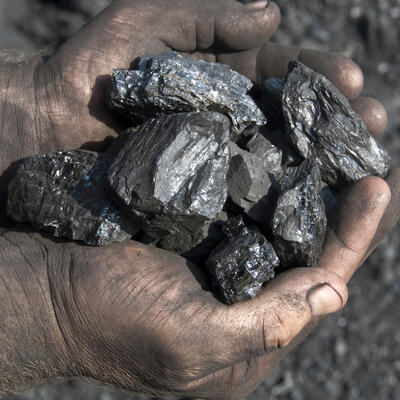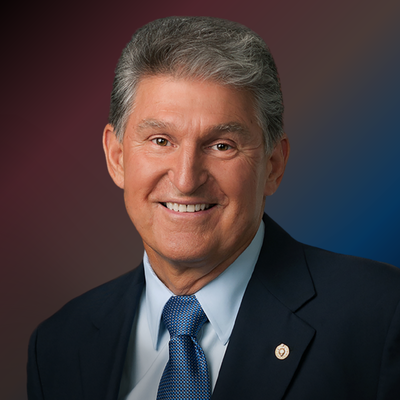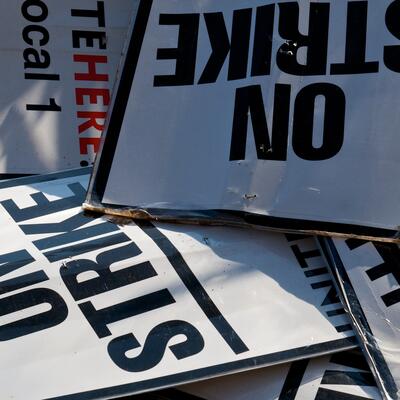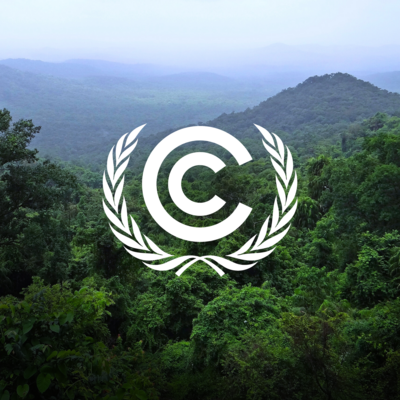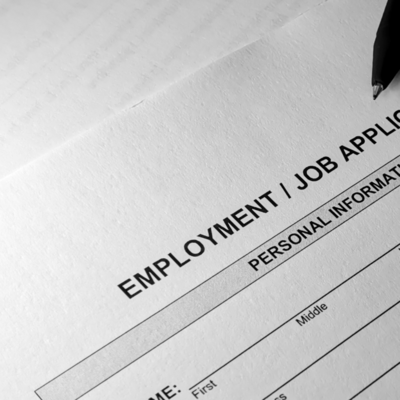
Six People Who've Changed Jobs for Climate
Guests
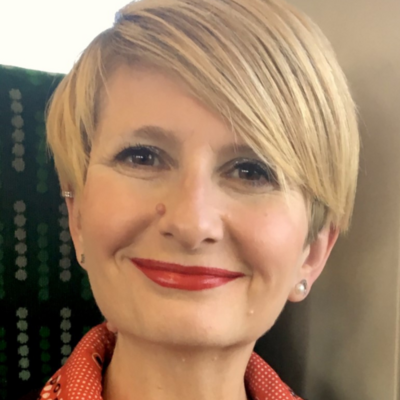
Caroline Dennett
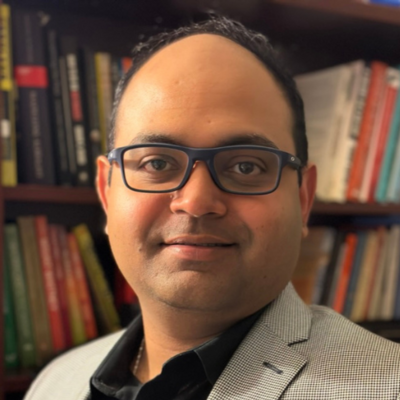
Arvind Ravikumar
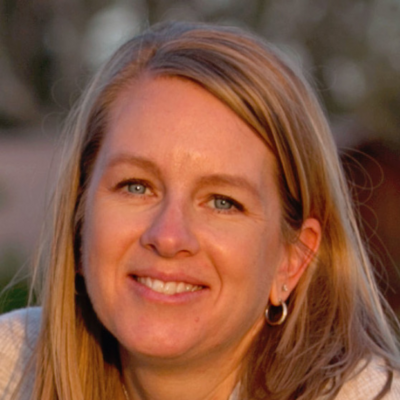
Jennifer Anderson
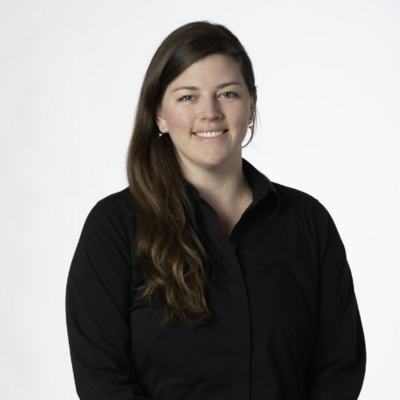
Emma McConville
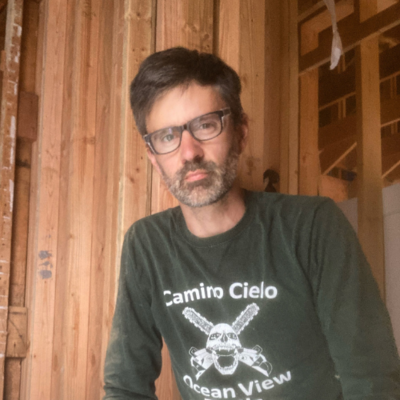
Nathanael Johnson
Summary
One of the most common questions people ask about climate is: what can I do? Some people change their light bulbs, drive EVs and change their diet. But on their own, none of those changes would not be enough to mitigate the climate crisis. On the other hand, one of our most valuable resources is time. And since we spend so much time working, a job change may be the most effective change an individual can make. Those changes can be incremental or dramatic.
Caroline Dennett, Director at CLOUT Ltd, was once a consultant for Shell Oil. But after getting fed up with Shell’s lack of action on the climate crisis, Dennett resigned in a very public way: posting a video online. Dennett says, “I just thought if I'm going to go, I can have some impact here and I can maybe start that conversation I wasn't hearing, I can provoke it.”
Emma McConville’s first love was geothermal energy. When she was finishing her Master’s degree, jobs in the geothermal industry were not very plentiful. So when Exxon offered her a position, she took it. Two years later, McConville lost her job in a wave of layoffs that plagued the oil industry during the pandemic. McConville says, “When the layoffs happened, I really saw that as an opportunity to level set with myself and say, okay, what's out there now.” That opportunity presented itself as a job opening at Fervo Energy, where she is currently Development Geoscience Lead.
“You're going to see a lot of jobs becoming available in traditional clean energy, which is solar, wind and batteries, but also industries that the U.S. government has affirmatively invested in,” says Arvind Ravikumar, Co-Director, Energy Emissions Modeling and Data Lab, University of Texas, Austin. That’s good news for young professionals looking for careers in clean energy. But those who have been working in the dirty energy industry for many years may have options as well, such as transitioning to capping unused oil wells. Ravikumar says, “It's perfect because those jobs are going to exist for the next maybe five to ten years, and those are the exact time periods they're looking at for late stage oil and gas workers.”
“I had all these years in oil and gas, I also had all those years of oil and gas connections. And so when I looked at my network there was really no bridge out.” That was the problem facing Jennifer Anderson, who is now a Carbon Removal Geologist at Charm Industrial. During her job search, Anderson received guidance to use the skills she had in order to make a positive climate impact. Anderson says, “Whatever you have in your background, you need to use it. Don't run away from it.”
Nathanael Johnson was working as a journalist for Grist, writing about climate policy to a big audience. Seems like a pretty amazing job, right? After a while, it didn’t feel that way to Nathanael. And he decided to make a radical change: from writer to electrician. Despite the job being more physically demanding and maybe less prestigious to some, Johnson says, “After years of writing about climate policy in the abstract, it's unbelievably satisfying to be directly electrifying everything. After doing so much talking, what a relief to start doing.”
Resources From This Episode (5)
Full Transcript
Note: Transcripts are generated using a combination of automated software and human transcribers and may contain errors. Please check the actual audio before quoting it.
Greg Dalton: One of the most common questions people ask about climate is: what can I do? Today we’re going to talk to people who did something big. I’m Greg Dalton
Ariana Brocious: I’m Ariana Brocious
Greg Dalton: And this is Climate One. When I first started hosting this show in 2007 we were changing lightbulbs, and then came EVs and changing diets. But the truth is, those things are helpful, but on their own they’re not enough to make the change needed to mitigate the climate crisis.
Ariana Brocious: And as the years have gone on, people are feeling increasing pressure to act on climate. We see evidence of the impacts seemingly every day around us. And this is a question I get a lot too: What can I do?
Greg Dalton: Our time is our most precious resource, and since so much is spent working, changing jobs may be one of the most effective ways any one person can help the climate. Those career turns can be incremental or dramatic.
Ariana: That’s right, you could leave your current job and go work for a wind company. You could start an urban farm work in water recycling or trade renewable energy stocks.
Greg: Or you could take the skills you already have and use them to support energy and climate work. All these companies need people who do marketing, finance, HR.
Ariana Brocious: And actually, almost any job can be a climate job, maybe even the one you already have. How can you work within your company to push for more sustainability? Or I think about a previous guest, comedian Rollie Williams, who went back to school for a master’s in climate policy so he could tell better jokes about climate.
Greg Dalton: So today we’re going to talk to people who decided to use their careers in order to move away from fossil fuels.
Ariana Brocious: First up is my conversation with Caroline Dennett, Director of CLOUT Ltd. She was a consultant for Shell before resigning in a very public way: posting a video online.
Caroline Dennett: My name is Caroline Dennett and this is my resignation. I've worked with Shell for over 10 years now, empowering tens of thousands of workers to improve safety culture at their work sites, trying to keep people safe, prevent oil and gas leaks and major incidents like the Deepwater Horizon disaster in the Gulf of Mexico. But today I'm quitting because of Shell's double talk on climate. Shell's stated safety ambition is to do no harm. It's called Goal Zero, and it sounds honourable, but they are completely failing on it. They know that continued oil and gas extraction causes extreme harms to our climate, to our environment, and to people. And whatever they say, Shell is simply not winding down on fossil fuels. They're expanding with new exploration and extraction projects against the clear warnings from scientists and dismissing the huge risks from climate change. And I just can't be a part of this anymore. I know I'm privileged to be able to make this choice and many people working in fossil fuel companies just aren't so lucky. But the fossil fuel industry, it's the past and if you can find a way out then please walk away while there's still time. Do it now.
Ariana Brocious: You gave that public resignation in May of 2022. What's it like to hear it now?
Caroline Dennett: It's still quite powerful. the moment it started, it took me back to that moment just before pressing the button on posting and emailing the CEO and some about a thousand workers as well.
Ariana Brocious: It is really powerful. Your words are powerful. So what made you decide to resign in that way, on a public video?
Caroline Dennett: I had been thinking about quitting Shell for a while just because the difference between my values and what I was seeing they were doing was becoming. Bigger and bigger. And I just hadn't heard any conversation inside of Shell, about the need to decarbonize or to take responsibility for the pollution that they were causing. And I, I just thought if I'm going to go, I can have some impact here and I can maybe start that conversation I wasn't hearing, I can provoke it. It was quite provocative and yeah, there was a lot of emotion tied up with desire to be provocative.
Ariana Brocious: And you use the word double talk, I think, in there. And you were quite familiar with Shell's operations as a contractor for them for many years. So it sounds like you had your own growing awareness of the severity of the climate crisis, but there was a point when something switched for you. So what was that? When was that?
Caroline Dennett: So in terms of my awareness, definitely there was a big switch in the spring of 2019 when I saw a talk about the science, the real science around climate change and biodiversity loss. And I really, it shocked me. I thought I knew something about those topics, but it turned out I didn't know enough. So from that moment on, for the next, I know it sounds a long time, for the next sort of two years, I was really looking at how I might decouple from Shell. It was quite tough. It was a big part of my revenue and I knew I was still doing good. The job I was doing helped prevent some pollutions and helped prevent harms to people. This dissonance was building but I think really the biggest trigger of all was the realization that they had no intention of transitioning out of fossil fuels and into renewables. And in fact, what I was seeing and what I was being asked to become involved in was more expansion and extraction projects, particularly in the Niger Delta, which I felt was already saturated by the spills from that oil production. And so that was it really I just, I, it. I would have gone on actually doing the job that I loved there if I had thought for one moment they were serious about transitioning, but I could see that wasn't. And I just, I literally could not, I could not bear the conflict that I had internally any longer.
Ariana Brocious: When we talked before, you mentioned how much you enjoyed the work that you were doing at Shell and that it was really difficult. It comprised something like 60 to 70 percent of your revenues, right? Your income from working with them. So how significant was it as a decision for you, financially, to just walk away from that?
Caroline Dennett: It was a big decision, but it wasn't the biggest decision. I have to say, I, I thought I could actually make that revenue up with other clients; it was much more of an emotional decision. Actually it was much more about, about that. And I think, in terms of the context of the soul searching around that, it was more about. partly about loss of identity, actually, that I would not be that person any longer that was doing that work with Shell. It was a sense of, I do feel I'm about to betray the people that I've been working with because I did love that job and I knew that I was it felt a little bit like I was about to silence a lot of people because they used the surveys that we did, the safety culture service that we did to really have a voice between themselves and management through, through us. And I knew that I was about to cut off that, that. which I'd been encouraging for so long inside of Shell. So it was really difficult. I did feel quite sad about it in, in many ways. It wasn't a, it was an easier financial decision than it was a moral decision, actually.
Ariana Brocious: So you were inspired by Extinction Rebellion's jump ship campaign and you were one of the first to actually do this, to quit your job to jump ship in a public way. Your resignation video went viral and it's now held up as an example of what are called climate quitters, which is probably the wrong name for what you're doing. Identifying people who have quit their job out of concern for climate. So how much of an impact do you think you've had?
Caroline Dennett: I think it gave some people permission to also speak out, to share, to jump onto that thread, that post that went on LinkedIn and to actually express their concerns. And some people saying. Actually, I did something similar, but I did it quietly, or it wasn't the fossil fuel industry, but it was, maybe I've quit from advertising for the fossil fuel industry, or actually it's one of the other supportive industries, or I saw something in healthcare and I did, so it actually created a kind of a bit of a snowball effect, I'm not saying I started this, but I think since then there has been momentum around that. I think business and employee activism in the climate and environmental sphere is a thing and it's a big thing now and it's getting bigger. There's evidence of that. There's been certainly here in the UK, there was something called Business Declares a few weeks ago, where Business people queued up in line to sign a book to say, I want my government to do something about this. There's also the, We Mean Business coalition. They, there's 131 global companies. You've just signed a letter to to cop 28 saying, Hey. Come on, we need to seriously decarbonize. So I think it, it's been part of a movement, and I'd like to think I've been a, I've been a small part.
Ariana Brocious: What was it specifically about the Extinction Rebellion talk that shocked you or, changed your mind about this?
Caroline Dennett: I think the speed at which the carbon is being emitted and the speed of global warming is very high. And the number of. species that are at risk of extinction is absolutely huge. And, and I did know something about greenhouse gas emissions. I did know about global warming, but I didn't know just how rapidly we were warming the planet and that, we were already at 1.1 degrees of warming above pre industrial levels and that we were heading for 1.5 very quickly if we didn't stop the source of that warming. And I probably hadn't thought about the biodiversity side of it. I hadn't thought about the number of species that we are losing.
Ariana Brocious: Yeah, so you acknowledge in the video that you have privilege in being able to walk away from this job in the oil industry. What do you think a so-called just transition looks like for fossil fuel workers who don't have that ability to walk away?
Caroline Dennett: I think there can be a just transition. I never understood why the likes of Shell were not using all that they had, capital and skills and the machinery that they have, all of those things to transition. Cause they're really well placed for that. A lot of offshore workers could have been easily deployed, redeployed for, offshore infrastructure for renewables, for example. And I know there's a lot of workers who would love to be part of that transition. They're just like everyone else, they're concerned about climate change. They're concerned, concerned about the effects of that.
Ariana Brocious: Let’s take a step back. In your consultancy work today, how do you determine which companies you'll take on as clients?
Caroline Dennett: I had another client that's in oil business, the downstream, the refiner, which I'd already done a survey for previously. And I was booked to do another survey and I, they came saying, Oh, it's time to do another survey at the beginning of this year. And I was like, did you see what I did to Shell last year? I want to be really honest with you. And I sent them the video and they said, Oh yes. That's. Yes. Okay. We understand you may find it difficult to work with another oil company, we are serious about transition. We are serious about sustainability. So they're actually a company in Thailand. And they did say we are aware that Thailand is the ninth most vulnerable country climate change consequences, we've just signed an agreement with the government that we will commit to X amount of decarbonization by 2030. So they said that, please take a look at our policy. Signed by our president. If you look at that and you think, you know what, it's still not good enough, we'll understand that you don't want to work with us, but actually... We hope that you will want to work with us. Now that is a safe transition. That is a safe transition where you have an absolute published policy that says this is our targets. This is what we're aiming to do. And this is how we're going to get there. I would support any company just to, to reach a safe transition, whether operations remain safe until, through that transition period. What I don't want to do is greenwash someone's business or pretend that they're doing something that they're not.
Ariana Brocious: Yeah, so what's interesting to me is that, there's people who believe that and this crosses like divestment and some other kinds of climate activism where there's one camp that thinks we have to completely cut out oil and gas, walk away, don't engage, we're done. And there's another that, It seems to think it's more powerful to remain engaged with oil and gas companies and the fossil fuel industry and help them transition and work from within sort of to help change this. So it sounds like you're maybe a bit in the latter camp.
Caroline Dennett: It depends. So the whole engagement versus divestment thing, I'm really familiar with that with language, having been a divestment campaigner, so I hear all the time from investors, Oh, we want a seat at the table, we can engage, we can change as well. You know what? 10, 15, 20 years of engaging. It hasn't worked, has it? it really hasn't worked. You can only work with someone in that transition. If they have a commitment to transition, if they have a commitment to get every last drop of oil and gas out of the ground or out from the bottom of the sea, that is not a safe transition.
Ariana Brocious: Caroline Dennett is director of Clout LTD. Carolyn, thank you so much for joining us on Climate One.
Caroline Dennett: Thank you, Ariana. It's been a pleasure.
Greg Dalton: A couple weeks ago, we put out the call to you, our listeners. We wanted to hear about the changes you’ve made in your own careers to focus more deeply on climate. Some of those shifts were small, some of them big…
Kathi King: Hello, Climate One. My name is Kathi King. I went to film school and worked in the television industry in Los Angeles for several years, including 3 years as associate producer on the sitcom Full House. Once I had kids, I realized that the concern that I'd had for the environment, that had been growing for, you know, several years since the 70s and into the 80s. Um, and then in the 90s was something that I needed to do something about for my family and for all families. So, um, I got a job at a nonprofit called the community environmental council, and they hired me in development because I had done so much fundraising at my kid's school. So I always say that you can get job skills while you're volunteering, whether you realize it or not at the time. And I worked my way into other projects at Community Environmental Council. I am now the director of climate education and leadership and I have been at the organization for almost 16 years and this is my calling and I am so happy that I found it
Ariana Brocious: We also heard from listener Pete Rognli about his story of climate career change.
Pete Rognli: I live in St. George, Utah. It's a rapidly growing community. And I moved here back in 2016 for a job in the outdoor tourism industry. So basically what we, we would do is we would take people from all over the country, all over the world to the national parks, take them into the backcountry of some of the really beautiful places, uh, around Southern Utah. The trips themselves are fairly small c conservative in terms of carbon impact. What it was for me is the justification of flying people from the east coast or from Europe over here. That's just a lot of jet fuel. A lot of things happened, the pandemic happened, which allowed for some time for introspection, And I just thought about what could I do that would have a direct impact. And St. George is, it's a very, very sunny place. We have a lot of houses. I knew that the biggest place I could move the needle was with sales. And it was also what I could jump into without a lot of industry retraining and every house that I'm able to convince to put solar on their home. It doesn't matter if they move in five years or whatever, I essentially locked up a good chunk of the carbon emissions on that home for the next 40 years. I feel great. It's hard. You know, it's hard to convince them that they should be paying more for clean energy when climate change here for a lot of people is a myth and a hoax. And so I do not mention climate change ever. I talk strictly about what it's going to do for their own personal energy security. Or for their own personal financial security. I just consider myself an undercover climate warrior.
Greg Dalton: Thanks to everyone who reached out and shared how you are considering climate in your career choices.
If you missed a previous episode, or want to hear more of Climate One’s empowering conversations, subscribe to our podcast wherever you get your pods.
Ariana Brocious: Please help us get people talking more about climate by giving us a rating or review. You can do it right now on your device. You can also help by sending a link to this episode to a friend.
Greg Dalton: Coming up, jobs in the fossil fuel industry do have their benefits… They pay well and are often unionized. So to transition away from that industry, it will be crucial to make sure workers are supported and taken care of.
Arvind Ravikumar: We have not done it before. We haven't lived up to our responsibilities, which means we're going to have a lot of work to do over the next decade.
Greg Dalton: That’s up next, when Climate One continues.
This is Climate One, I’m Greg Dalton
Ariana Brocious: And I’m Ariana Brocious.
Greg Dalton: We’ve got another story of a job change. Emma McConville’s first love was geothermal energy. When she was finishing her Master’s degree, there weren’t a lot of jobs in that area. But she got an offer – from Exxon – with good benefits and opportunities to learn new skills. Emma told me she had a bit of heartburn… but she took the job.
Greg Dalton: After just over two years, Exxon laid her off – along with many others.
Greg Dalton: It was a big hit. But Emma was able to see a silver lining.
Emma McConville: When the layoffs happened, I really saw that as. an opportunity to level set with myself and say, okay, what's out there now, what opportunities exist, you know, in geothermal that weren't present when I first graduated with my master's.
Greg Dalton: She was able to find that new opportunity.
Emma McConville: We started seeing a large emergence of smaller startups in that space. And that's when I reached out to Fervo to see if they were hiring. And it just so happened that they were looking for a geologist at the time.
Greg Dalton: And working at a startup is very different than working at a big oil company.
Emma McConville: Starting to work for a startup, you're, part of your compensation is, stock options, right? And our company's done a really good job at making it competitive with oil and gas companies, I think on a, just a regular salary level, which has been different than what geothermal has traditionally done, and that helps us attract a lot of top talent.
Greg Dalton: For Emma, the benefits aren’t just financial.
Emma McConville: This is a wild adventure once in a lifetime, you know, building this company, being on the ground level with other really talented folks. Everything that I've learned in that process between, you know, doing geology, looking at reservoir engineering, helping with due diligence calls with investors, like, those are opportunities that wouldn't have presented themselves as soon as they did, uh, perhaps at a larger corporation.
Ariana Brocious: Emma’s story also makes me think about the bigger picture. What does the transition to clean energy look like for workers at all stages of their careers? To find out, I talked with Arvind Ravikumar, Co-Director of the Energy Emissions Modeling and Data Lab at the University of Texas at Austin. He works in the Petroleum and Geosystems Engineering Department and routinely helps students think through their career options.
Arvind Ravikumar: Gas workers in the fossil fuel industry come from a wide variety of backgrounds. You have people working in the oil and gas fields of West Texas who just graduated high school and you have people who have been in the industry for 30, 40 years and have risen up in the ranks to become leading managers and technical experts within different oil and gas companies and the needs of these very different types of workers will be very different in terms of what their future careers in the energy transition look like. Similarly, it also depends on place. An oil and gas worker in Texas, in the Permian Basin, will have very different needs when it comes to the energy transition compared to an oil and gas worker in, say, the Appalachian fields in Pennsylvania, Ohio, and West Virginia.
You might have a family of three generations working in the oil and gas industry who have set up roots in that region. But if you look at other parts of the country, like the Bakken Shale Basin in North Dakota, or the Permian Basin in West Texas, the resource is very different. You drill a well, it is most productive for the first three to four years. And then it declines in production. And so the communities that have formed in West Texas or North Dakota is more transient compared to communities that have established themselves in Appalachian Basin and their needs on what they would be doing as with regards to the energy transition are going to look very different.
Ariana Brocious: Given what you just said, how should the policies around job transition be tailored to help people who perhaps are in the camp of being in a long established place or industry rather than, it sounds to me like some of those people in transient industries might have an easier chance of changing.
Arvind Ravikumar: Absolutely. You need policies that are place based. You need policies that work in New Mexico, which might not be the same policies that will work in Colorado, or that will work in a place like West Virginia. You need system wide support to ensure that people and communities and governments that are dependent on fossil fuel revenues are managed in a way that does not result in significant short term disruptions to ongoing operations. And these are really important because it's not just about swapping a worker who's working in an oil and gas field to make him go and work at a solar farm. It really depends on what their skill profile is, where they're located, and what are the new energy jobs that are available in that location.
For example, if you look at oil and gas workers broadly you might have people who have just graduated high school and started working in the oil and gas industry. On the other hand, you might have someone who got a master's degree in petroleum engineering and they worked at an oil and gas company for 10-20 years and are an expert in drilling and subsurface technology. How will these two different types of worker transition should depend and take advantage of the skills that they've already acquired in this business? So for someone who has experience in the oil and gas industry and has worked there for a decade or so might be best suited to go to new energy industries that make use of the skills of the oil and gas worker. So that includes industries like geothermal, where we are seeing significant advances and investments from the U. S. government as well as other countries, or things like carbon capture and storage or even hydrogen. These are new industries where the skills of an experienced oil and gas worker is valuable.
Ariana Brocious: I can think about maybe even in the decline of some of those industries, let's say trying to do methane capture or some of these closing oil and gas wells that are active now and some of that's being funded, I think, also by the government, that there might be jobs there where you're still using the skills,you may already have, but you can be applying them to winding down some of that industry.
Arvind Ravikumar: Exactly. And who you employ there really matters. When you think about plugging, say, abandoned oil and gas wells, for which there's a lot of funding from the bipartisan infrastructure law And, this broadly includes restoration of land and water resources as the legacy industry winds down. There's a lot of need for such workers to be able to do that. And there's a lot of abandoned oil and gas wells that needs to be plugged and fixed around the country. But we have to recognize that these are temporary jobs. They are not going to be a forever abandoned well that needs to be plugged. We have not done it before. We haven't lived up to our responsibilities, which means we're going to have a lot of work to do over the next decade. But once you fix the existing abandoned oil and gas wells, those jobs will not exist anymore.
So you want to think about who would be best suited for this. And when you ask that question, then the answer comes to something like, no, you have oil and gas workers right now who are at the end of their careers. Maybe they are older, they have spent 30 years in the industry. It's unreasonable to ask them to go train themselves in a completely new industry so that they can work in that new industry for the next three to five years. But these are the people who have the most experience dealing with oil and gas wells and they are the ones you're going to need to be able to make sure that we restore our land and water, plug our abandon oil and gas wells across the country. And it's perfect because those jobs are going to exist for the next maybe five to ten years, and those are the exact time periods they're looking at for late stage oil and gas workers.
Ariana Brocious: Okay, so let's pivot back to someone at the beginning of their career. So let's say I'm a college senior and I'm at UT Austin, where you work, and I come to you and say, Hey, professor, I just got this job from ExxonMobil. It pays $120,000 a year. I have some student loans I need to pay off, but I don't really want to work for a company that has had such a, clear history of lying about climate impacts. So what advice would you give me?
Arvind Ravikumar: That's a really difficult question to answer because it's one thing that there's a huge promise of newer jobs and newer energy industries. But the reality is that the oil and gas industry, at least in the United States, still has a number of job openings. And for the most part, especially college graduates that go into these industries, make some of the highest average salaries in the country, those who graduate from chemical engineering or petroleum engineering. And this is a question that's not theoretical. We deal with this question every single day. As the newer generation comes into college and graduates they deal with these questions of, how can I work to address a climate crisis but also justify going and working for an oil and gas company. And I think, one of the things that I tell them, and I think that's powerful is that we're going to meet a lot of different people working on a lot of different solutions. If you're going to achieve our climate mitigation goals, including net zero emissions by 2050, and we don't know who are going to be leaders in this new energy space. For some, it'll be completely new companies that doesn't exist today.
For others, it'll be companies that just started a few years ago, like Tesla making electric vehicles, and for yet other technologies, it might be legacy companies who retool their operations to focus on the energy transition. We have seen oil and gas companies get into offshore wind. We have seen oil and gas companies get into geothermal. We have seen oil and gas companies get into carbon capture and sequestration. Just recently the Department of Energy awarded billions of dollars to set up carbon capture hubs and hydrogen hubs across the United States. And companies, legacy companies are trying to get into these newer areas where their skills will be useful, but that also reduces the emissions impact of the industry. So what I tell students is don't look at it from a narrow perspective of the morality of who's working the space. But look at the solutions and ideas of the future and find out who's working on them and focus on those areas and those jobs so that could jump start your career in the energy transition.
Ariana Brocious: So as we wrap up here, what trends do you see in the energy job market? Both in the short term say three to five years and maybe the next 10 to
Arvind Ravikumar: Everything's changing. I think that's the overarching message when it comes to the energy industry. Every day there's a new technology. There's a new startup that's developing a new way to access geothermal resources or a carbon free way to make steel. There's huge opportunity for students who are graduating from our universities just in the next three to five years. You're going to see a lot of jobs becoming available in traditional clean energy, which is solar, wind and batteries, but also industries that the U. S. government has affirmatively invested in. So hydrogen, geothermal, carbon capture and carbon removal are just industries that are right out of the gate being funded by the Department of Energy. And they're going to grow significantly. In fact, there are projections on the need for carbon removal and carbon capture. And if you look at all of the energy system models that people are developing, they are in gigaton scale of carbon removal, and we have barely scratched the surface. So in the next 3 to 5 years, you're going to see a lot of activity on these new energy technologies where you still need a lot of research. It's not scaled up yet. So the next 3 to 5 years are going to be students taking the skills that they're learning at universities in traditional departments and using them and applying them in some of these newer industries that are just starting. In 10, 15 years, we'll know which other technologies are poised to scale to address our big challenges in the energy transition.
Ariana Brocious: Arvind Ravikumar is co director of the energy emissions modeling and data lab at the University of Texas at Austin Thank you so much for joining us on climate one.
Arvind Ravikumar: Thank you very much for having me.
Ariana Brocious: This is Climate One. Coming up, we'll talk with a journalist who got fed up writing about energy policy. So he put down the pen and picked up... a toolbelt.
Nathanael Johnson: We're replacing the water heaters that burn gas with water heaters that run off compressors, heat pump water heaters and replacing furnaces with heat pumps and that's going to make a big difference.
Ariana Brocious: That’s up next, when Climate One continues.
Greg Dalton: This is Climate One. I’m Greg Dalton. And today we’re talking about people who decided to change jobs in order to focus their efforts on climate change.
Ariana Brocious: Jennifer Anderson is a Carbon Removal Geologist at Charm Industrial, but that wasn’t always her job.
Greg Dalton: Right. Before that she was a petroleum geologist for the oil and gas industry. She told me about her transition away from dirty energy.
Jennifer Anderson: Oil and gas was the furthest thing from my radar as I was going through school. Really on my mind was, Am I employable when I get out? And interestingly enough, I had also studied, the classics. I had double majored in Latin and Greek and I had won a scholarship for the summer after graduation to spend it in Athens and, I, at that point, had two job offers, one from an oilfield services company that had come to Case, recruiting, and another from an environmental consultant. And the naive consideration on my part, all of my career hinged on the fact that I wanted to start that job when I returned from Greece. And Schlumberger, uh, the company that I had got the other offer from was super accommodating. Like, we don't care when you start, do whatever you want. we're here, the job's here, um, for X number of months or whatever. So simply from that perspective, I was like, sure, oil and gas, let's do it. Having no clue at all what I was signing up for, but all that to say it worked out. I think it was in terms of the career development and the learning that I had in the field. It was a tremendous opportunity, but again, very naive on my part at the time.
Greg Dalton: Well, that’s the way, you know, you have kids in college, that's the way you make a decision. If I get to fit in my vacation, sure, that job. So you're kind of an accidental person who spent, what, 20 years more in oil and gas. When you were working for Schlumberger, or later worked for Occidental Petroleum, what did you think of climate as an issue?
Jennifer Anderson: I really didn’t think of climate as an issue. I look back and I'm like, how did I, how was I not aware? My blinders were on, and in that time frame I was raising a family, just focused on, yeah, um, a very small radius around our home. And, I think there were a couple of points along the way that, you know, kind of head up and realizing, uh, it had become political or, uh, hearing about it, uh, say on cable news network type of things really just brushed it off as, Oh, it's just some political thing. Somebody is making more of something than what it really is. I really did not consider it. I mean, it's, it's crazy, but, uh, sort of like I was just focused on the day ahead.
Greg Dalton: And then when did that start to shift for you? When did you start to see outside of that lane that you just described?
Jennifer Anderson: Honestly, it took a long time, and there were a lot of things going on in my personal life that I was really focused on, and it really wasn't until about 2018 that I went to a city council meeting to support the industry. The local community was It's um, voting on oil and gas setbacks. So what distance do oil and gas activities need to be away from residences and public buildings and that sort of thing? The industry at large locally in Kern County asks for folks to go and support the industry and listen to testimony and, and maybe even provide testimony, you know, in terms of like, uh, job security and that sort of thing. And I went, I actually brought my daughter with me. Just, I felt like this is going to be a, uh, kind of a great learning opportunity in terms of seeing how these things play out and, uh, what the local dynamics were. Nonetheless, I was not at all prepared just for the amount of personal testimony from local residents, just voicing all of the health concerns that they've seen either in their own families or in other loved ones in their community. And how operations in such close proximity to their lives had affected them. A lot of this testimony was, uh, translated from Spanish into English, um, and it was just a really sobering moment I was not prepared for. I thought I was doing something really good for domestic oil production and for this idea of lowering energy costs for Americans. And all of a sudden it just, it didn't resonate, it didn't make sense and yet the testimony I felt was very real. Some suggest it was contrived or these were paid actors. I don't believe so. Uh, it just, it just was that data point that on the drive home, which was maybe like 40 minutes, is like, wow, what do I do with that?
Greg Dalton: So in all your years, looking at the geology, looking down into the ground, you hadn't seen the people around, you'd been insulated, either were voluntarily, you, you hadn't seen those people.
Jennifer Anderson: Exactly. And that was sort of the first domino to fall because that got me interested in just what is going on in my community and started, um, just coming to terms with the fact that at that time, one out of every three children in Kern county were living in poverty. This is an area like five miles away from where I was living and raising my family and just trying to wrap my head around, like, how is it that in terms of all the comforts and security that I had in my life, how is it that with all the extraction in the county, all the tax revenue, how is it there's such a disparity?
Greg Dalton: So you start to look for ways out, how did you reimagine and repackage yourself?
Jennifer Anderson: So, it seems like it should be really simple, but when you take a blank sheet that you want to be your new resume and you try to like how to unpack this idea of I can write and I'm good with numbers. I had all these years in oil and gas, I also had all those years of oil and gas connections. And so when I looked at my network, uh, there was really no bridge out. of the industry that was clear to me. And so very quickly realized upon coming up with multiple different versions of a resume that still kind of said nothing, you really need people to help make those connections. And so, uh, very quickly felt like, wow, I'm on a road to nowhere here.
Greg Dalton: And job seeking has changed. All of a sudden, there's, there's all these AI things, reading resumes, job changing has changed a lot from, you know, early 2000s to now. So eventually you did seem to see a path ahead.
Jennifer Anderson: I should be completely transparent. I had a year of severance. That's something I'm really grateful for in terms of this is a gift of time that in terms of preparing, um, my household for unemployment, uh, was a huge springboard. And so during that time, I really, um, used it to do a number of different things, uh, studying climate science through Terra.do's Learning for Action program was one of the highlights in the sense of not only, um, understanding more about climate science, but then also having this amazing resource of, uh, just networks from multiple different places, uh, geographically and from multiple different industries just to understand, uh, what do you think I could do? Like, this is what I'm good at, uh, what do you think? Uh, that sort of thing. So that was a huge, played a huge role.
Greg Dalton: So, studying climate science, did you have any thoughts, or, about all the oil and gas you helped get out of the ground and burn for 20 years?
Jennifer Anderson: Yeah. Uh, in fact, there's a couple of, uh, climate specific, uh, whether Slack communities or, or memberships, that sort of thing that I was very hesitant to engage in. Just sort of that, um, yeah, are they, are they gonna accept me?
Greg Dalton: Oh, you're, you're a bad person from oil and gas.
Jennifer Anderson: Yeah. And overwhelmingly I found multiple different communities like that being so open and so engaging.
Greg Dalton: Come on in. We welcome you.
Jennifer Anderson: Yes! With the idea that climate needs everyone, from every different background, doing their part. And, um, all that to say that the concerns and the fears quickly faded away. Just meeting people who are so generous with their time and with their ideas.
Greg Dalton: So you talked about getting out of oil and gas. Were you specifically looking for a new job in clean energy or carbon removal?
Jennifer Anderson: I really was open minded to pretty much anything. One of the, I don't want to say downsides, but one of the challenges I found from engaging with the Learning for Action is, like, I was interested in everything. There was so much happening across, whether it's transportation, clean energy, there's so many things happening. All that to say that even probably about three fourths of the way through the program, I was still really thinking how to become a grant writer, how to work for a nonprofit. And when again, meeting with lots of different people within that organization, uh, was talking with one of the Terra.do, um, uh, Staff members with this idea of like she had seen other people from oil and gas come through. What did they do? Could she connect me with them and that sort of thing? And she really impressed on me this idea that, um, when we're talking about the climate emergency, there's no time to reinvent yourself. And she was very frank. Jennifer, there are no do overs, is what her guidance to me was. Whatever you have in your background, you need to use it. Don't run away from it. Don't, you know, like, uh, think of,
Greg Dalton: Your story is your story. Embrace it
Jennifer Anderson: Yeah, own it and use it. And it was sort of a light bulb moment. Like, wow. Yes, she's right. Maybe somebody might need it. It just helped me, um, keep jobs in focus that maybe I had been unintentionally ignoring at the time. I had wanted to get so far away from oil and gas that I thought I needed to reinvent myself. And, uh, just based on what she said, it was, like I said, kind of a light bulb moment and helped me see things a little differently.
Greg Dalton: Did you ever like break down and cry or just think like, Oh, I'm like, I'm going to go back to oil and gas.
Jennifer Anderson: I, uh, don't remember a lot of tears. I do remember anxiety. I never really thought about anxiety as a thing until I left the industry. And I think just so many different layers of comfort being removed, whether it was old coworkers and colleagues that I'd been with some with all that time.
Greg Dalton: Making good money.
Jennifer Anderson: Making good money, uh, just, I, there were so many things I had never thought about before. My identity. Who am I if I'm not doing these things? It was a really difficult, uh, emotional rollercoaster that I was not at all prepared for. Another aspect of that is just managing even climate anxiety because on top of all of the job seeking and like who am I sort of questioning was, wow, the earth is burning and it's way worse than I thought it was. So all that to say that,
Greg Dalton: I'm a little complicit?
Jennifer Anderson: I'm a lot complicit, for sure. And, uh, how to unwind, how to, how to, um, take what I have and make a meaningful difference in Career 2.0
Greg Dalton: You moved, you found a new job, and it actually was using the skills that you have used for decades rather than grant writer for a nonprofit.
Jennifer Anderson: Yeah, I feel really privileged in that regard. Um, and it was through the, these sort of climate slack communities, uh, one in particular called My Climate Journey. Uh, they, um, through just a random conversation, I cross paths with the head of operations at CHARM.
Greg Dalton: And Charm is a company that's trying to do what?
Jennifer Anderson: So at CHARM, we're, uh, taking an alternate sequestration path, uh, taking, uh, way, uh, uh, byproducts from agricultural industry, whether corn stover or woody wildfire debris here in the western states. And we're pyrolyzing that, essentially, uh, heating it, uh, very quickly to produce, uh, a bio oil, a very carbon rich, uh, liquid.
Greg Dalton: And then to put that in ground, basically, you're trying to take things leftover from farms and forests and make it liquid and put it in the ground and store it so that it, the carbon doesn't go up into the air and heat the planet.
Jennifer Anderson: That's right. Yeah. And we're working specifically with depleted oil and gas assets. So really supporting from idle and orphan well inventories, sequestering bio oil in the subsurface and then completing, the project by supporting its abandonment. So closing the asset and ensuring…
Greg Dalton: Doesn't leak, doesn't leak out. So if I said to Jennifer, working in Kern County, the heart of oil and gas country in California, that you would be living in San Francisco, the den of inequity…
Jennifer Anderson: Never in a million years.
Greg Dalton: Never in a million years.
Jennifer Anderson: Yeah. Very random.
Greg Dalton: Thank you, Jennifer, for sharing your story, f.
Jennifer Anderson: Thank you so much for having me. This was great.
Greg Dalton: This hour, we’ve been talking with people who have made shifts in their working lives to address the climate crisis. I want to close the show today with Nathanael Johnson. He was working as a journalist for Grist, writing about climate policy to a big audience. Seems like a pretty influential, cool job, right? After a while, it didn’t feel that way to Nathanael. And he decided to make a radical change… from Writer to… Electrician. Here's what he wrote on Twitter, back when it was called Twitter...
Nathanael Johnson: It feels good to be doing something that is unequivocally useful. After years of writing about climate policy in the abstract, it's unbelievably satisfying to be directly electrifying everything. After doing so much talking, what a relief to start doing.
Greg Dalton: I'm not sure what I think of that. I'm still in the talking business because I think conversations are necessary, to precede action. I know you're not saying that the media needs to go away, but just say more about, How you feel about electrifying everything?
Nathanael Johnson: It's interesting to read this after... You know, I've been doing this almost three years now, um, and so, you know, you get a little peek back into your frame of reference from, a while back. The really good days for me would be going out and, like, spending a day In a forest with someone who's working on wildfire and forest management or or, you know, doing site visits for renewable energy facilities, and that would sort of feel more like an adventure than my normal time in front of a screen and, so there, there's a way in which I just get to do that every single day now. I, you know, I'm, I'm interacting with the physical world and figuring things out on the fly. And so it's more of a selfish thing, right? I get to have these adventures on a daily basis.
Greg Dalton: Well, but you also get to see the outcome of what you do. like, Oh, I'm helping electrify this. We did this today. You know, in journalism, you sometimes you put an article out there and people read it and you wonder what happens.
Nathanael Johnson: Yeah, exactly. You're farther from the, uh, effect. The stuff that I'm doing, I'm, it's right in front of my face. I get to see, okay, at the end of the day, the plumber is going to come and turn off this gas line and my electric line is going to replace it. Um, and so, yes, that is, that's absolutely satisfying. And I don't know if you feel this way, but as a journalist, it felt like, you know, I was sending out these Voyager probes to like, you know, you send off, you shoot this off into space and you hope that it reaches intelligent life out there somewhere and causes some kind of reaction And if it does, it’s going to have more of an effect than my little electrification of one house.
Greg Dalton: Yeah, that's okay. But you know, you're, you're doing it. We need a lot of electricians in this country for sure. There are not enough. It's one of the real bottlenecks. Uh, it's okay to say you did it for yourself, you know, no judgment there. You're not sitting at a desk, you're crawling around on your hands and knees getting dirty. How's that part of it?
Nathanael Johnson: It's definitely more direct physical discomfort than I had as a journalist. I didn't whack my thumb with a hammer nearly as much as I do nowadays. Uh, but you know, they, I think about this a lot and I, I feel like there's desk jobs, you have physical discomfort as well. You just don't notice it until it's crept up on your back, you know, after five years of slumping over. And a lot of the interactions you have with sources who are snarky or with randos on Twitter, maybe that's not physical discomfort, but that's real discomfort. And having had that previously, uh, it makes, you know, I'll, I'll, every once in a while, I seriously, you know, I'll be, like, squeezed between these joists and, and, uh, wearing a ventilators, I'm not breathing all kinds of terrible asbestos laden crap and thinking to myself, what am I doing? And then I'll kind of remember, you know, there's there really is discomfort. There really is forms of suffering in every single job, and it doesn't it really doesn't feel worse to me.
Greg Dalton: So it sounds interesting, challenging, different.
Nathanael Johnson: Yeah, absolutely. Sometimes my friends are asking about this precise question, if you're really wanted help with climate change, what can you do? I talked to them about the fact that there's work adjacent to their professions, no matter what they're doing that you don't have to sort of blow up your life. But you can, if you want to, you know, you can, it's, it's totally fine to, you can completely shift from the very white collar verbal-based problem solving to a very hands-on sort of direct solving one discrete problem at a time. We're replacing the water heaters that burn gas with water heaters that run off compressors, heat pump water heaters and replacing furnaces with heat pumps, that's going to make a big difference.
Greg Dalton: Yeah, doing the work, rather than talking about it, actually doing it. Thanks to Nathaniel for sharing your story with us.
Nathanael Johnson: Absolutely. My pleasure.
Greg Dalton: On this Climate One... We’ve been talking about the many ways people can focus their careers on energy. Climate One’s empowering conversations connect all aspects of the climate emergency.
Ariana Brocious: Talking about climate can be hard-- AND it’s critical to address the transitions we need to make in all parts of society. Please help us get people talking more about climate by giving us a rating or review. You can do it right now on your device. You can also help by sending a link to this episode to a friend.
Greg Dalton: Brad Marshland is our senior producer; Our managing director is Jenny Park. Ariana Brocious is co-host, editor and producer. Austin Colón is producer and editor. Megan Biscieglia is our production manager. Wency Shaida is our development manager, Ben Testani is our communications manager. Our theme music was composed by George Young (and arranged by Matt Willcox). Gloria Duffy and Philip Yun are co CEO of The Commonwealth Club World Affairs, the nonprofit and nonpartisan forum where our program originates. I’m Greg Dalton.
